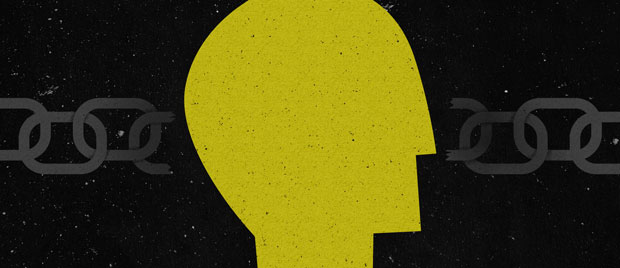By Grace, We Are Free in Christ

In John 8:34 Jesus underlined the bondage in which we are held by nature. On the other hand, He spoke about the freedom into which He brings sinners by grace: "If the Son makes you free, you shall be free indeed" (John 8:36).
How could the Son set them free? Because of who He was. He was the Son who has been sent into the world by the Father. He knew the Father's plan. He had the most intimate relationship with the Father. He had heard everything the Father had said, and He came with this message of good news: "The Father has sent Me in order to set you free" (see John 8:28).
How, then, does Christ set us free?
John had answered that question earlier, in the most famous verse in his Gospel. This God, this Father, so loved the world, this world in its sinfulness and bondage, that He sent His only Son into it. He had only one Son, but He sent Him to die on a cross in order to save everyone who believes in Him (John 3:16).
The Son would be "lifted up"—lifted up on a cross, exposed in public shame, hanging between heaven and earth, under the judgment of God against our sins—so that those who believed in Him should not perish but have everlasting life (John 12:32; 3:16).
Jesus Christ is able to set us free because He has dealt with the sin that enslaves us.
We can never atone for our own sin. We can never break its power. We can never come to God and say, "God, surely what I have done is enough to compensate for my sins." Nothing we can do can possibly compensate. But God sent His own Son—think of it, His own Son—who stood in for us, in our place. He lived a perfect life. Since He had no sins of His own to atone for, He was qualified to make a sacrifice for our sins. No sacrifice we could make could ever be adequate to atone for sin. But He was able and willing to do it. Because of that, we can be set free from guilt and from the bondage it creates.
Christ also sets us free in another way: through the truth about God—and about ourselves—that He reveals. If we believe in Him, we will come to know the truth, and the truth will set us free (John 8:32). That is His promise.
I have met some exceptionally intelligent people who cannot understand the Christian gospel. They hear its message as if it were a lecture on morality. Yet the gospel is not difficult to understand. The problem lies within us—in our spiritual blindness. If there is resistance in the heart to loving God, there will be resistance in the mind to knowing God—and therefore to listening to and seeking God. Only the truth can set us free.
Later on in John's Gospel, Jesus spoke about sending the Holy Spirit to His disciples. He would be like a great spotlight shining into their minds, illumining them so that they could begin to see and understand Jesus and what He had done. The Spirit would remove spiritual deception, transform the spiritually dead, and glorify Christ.
So Jesus is able to set us free because of who He is and because of what He shows us.
As a result, we now may dare to call God "Father."
This is the most obvious difference between a "religious" person and a Christian. A religious person is likely to address God—especially in a crisis—as "O God," not as "O Father." There is a simple reason for this. Unless you know God as your Father, you never cry out to Him in your need as "Abba, Father" (Rom. 8:15–16).
This excerpt is taken from By Grace Alone: How the Grace of God Amazes Me by Sinclair Ferguson.